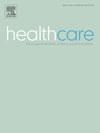Finding representation for the unrepresented patient: Creating a volunteer health care agent matching program in Massachusetts
IF 2.1
4区 医学
Q3 HEALTH POLICY & SERVICES
Healthcare-The Journal of Delivery Science and Innovation
Pub Date : 2025-09-16
DOI:10.1016/j.hjdsi.2025.100769
引用次数: 0
Abstract
A foundational principle of health care is patient autonomy – respecting an individual's right to control what happens to their body, including what care they do and do not receive. That right is not lost when an individual loses the ability to speak for themselves or make reasoned decisions. One way to ensure health care decision-making aligns with a patient's wishes is for an individual to appoint a health care agent (HCA) to make decisions on their behalf if they are unable to. However, some people are ‘unrepresented’, meaning they do not have anyone to appoint. Lack of an HCA can result in delays in care, care that does not reflect a patient's wishes, and avoidable costs to the health care system. Strategies to address this have largely focused on courts appointing a guardian after an individual has lost decision-making capacity-a lengthy process that often exacerbates delays and, most importantly, does not result in a decision-maker who knows the individual's priorities and preferences. To address this challenge, four Massachusetts organizations developed a volunteer HCA program matching employees of each organization as HCAs for ‘unrepresented’ individuals receiving care at the other organizations. This model shows promise as an approach to ensure individuals can choose their HCA and personally communicate their priorities and preferences to them. Additionally, training volunteers as HCAs for strangers and learning from their experiences may offer insights into how everyone can be better at these conversations and representing the choices of others - especially with people close to them.
为没有代表的病人寻找代表:在马萨诸塞州创建一个志愿者医疗保健代理匹配项目。
医疗保健的一项基本原则是病人自主——尊重个人控制其身体状况的权利,包括他们接受和不接受何种治疗。当一个人失去为自己说话或做出理性决定的能力时,这种权利并不会丧失。确保医疗保健决策符合患者意愿的一种方法是,如果个人无法做到这一点,可以指定一名医疗保健代理人(HCA)代表他们做出决定。然而,有些人“没有代表”,意思是他们没有人可以任命。缺乏HCA可能导致护理延误,护理不能反映患者的意愿,并给卫生保健系统带来本可避免的费用。解决这一问题的策略主要集中在法院在个人失去决策能力后指定一名监护人——这是一个漫长的过程,往往会加剧延误,最重要的是,不会产生一个了解个人优先事项和偏好的决策者。为了应对这一挑战,马萨诸塞州的四个组织制定了一个志愿者HCA计划,为在其他组织接受治疗的“无代表”个人匹配每个组织的员工作为HCA。这种模式有望确保个人可以选择他们的HCA,并亲自向他们传达他们的优先事项和偏好。此外,培训志愿者作为陌生人的hca,并从他们的经验中学习,可能会让我们了解每个人如何更好地进行这些对话,并代表他人的选择——尤其是与亲近的人。
本文章由计算机程序翻译,如有差异,请以英文原文为准。
求助全文
约1分钟内获得全文
求助全文
来源期刊

Healthcare-The Journal of Delivery Science and Innovation
HEALTH POLICY & SERVICES-
CiteScore
4.90
自引率
0.00%
发文量
37
期刊介绍:
HealthCare: The Journal of Delivery Science and Innovation is a quarterly journal. The journal promotes cutting edge research on innovation in healthcare delivery, including improvements in systems, processes, management, and applied information technology.
The journal welcomes submissions of original research articles, case studies capturing "policy to practice" or "implementation of best practices", commentaries, and critical reviews of relevant novel programs and products. The scope of the journal includes topics directly related to delivering healthcare, such as:
● Care redesign
● Applied health IT
● Payment innovation
● Managerial innovation
● Quality improvement (QI) research
● New training and education models
● Comparative delivery innovation
 求助内容:
求助内容: 应助结果提醒方式:
应助结果提醒方式:


